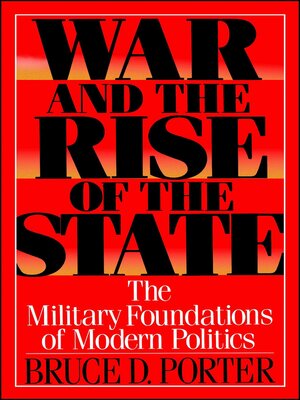
Sign up to save your library
With an OverDrive account, you can save your favorite libraries for at-a-glance information about availability. Find out more about OverDrive accounts.
Find this title in Libby, the library reading app by OverDrive.



Search for a digital library with this title
Title found at these libraries:
| Library Name | Distance |
|---|---|
| Loading... |
States make war, but war also makes states.
As Publishers Weekly notes, "Porter, a political scientist at Brigham Young University, demonstrates that wars have been catalysts for increasing the size and power of Western governments since the Renaissance. The state's monopoly of effective violence has diminished not only individual rights and liberties, but also the ability of local communities and private associates to challenge the centralization of authority. Porter's originality lies in his thesis that war, breaking down barriers of class, gender, ethnicity, and ideology, also contributes to meritocracy, mobility, and, above all, democratization. Porter also posits the emergence of the "Scientific Warfare State," a political system in which advanced technology would render obsolete mass participation in war. This provocative study merits wide circulation and serious discussion."
As Publishers Weekly notes, "Porter, a political scientist at Brigham Young University, demonstrates that wars have been catalysts for increasing the size and power of Western governments since the Renaissance. The state's monopoly of effective violence has diminished not only individual rights and liberties, but also the ability of local communities and private associates to challenge the centralization of authority. Porter's originality lies in his thesis that war, breaking down barriers of class, gender, ethnicity, and ideology, also contributes to meritocracy, mobility, and, above all, democratization. Porter also posits the emergence of the "Scientific Warfare State," a political system in which advanced technology would render obsolete mass participation in war. This provocative study merits wide circulation and serious discussion."







